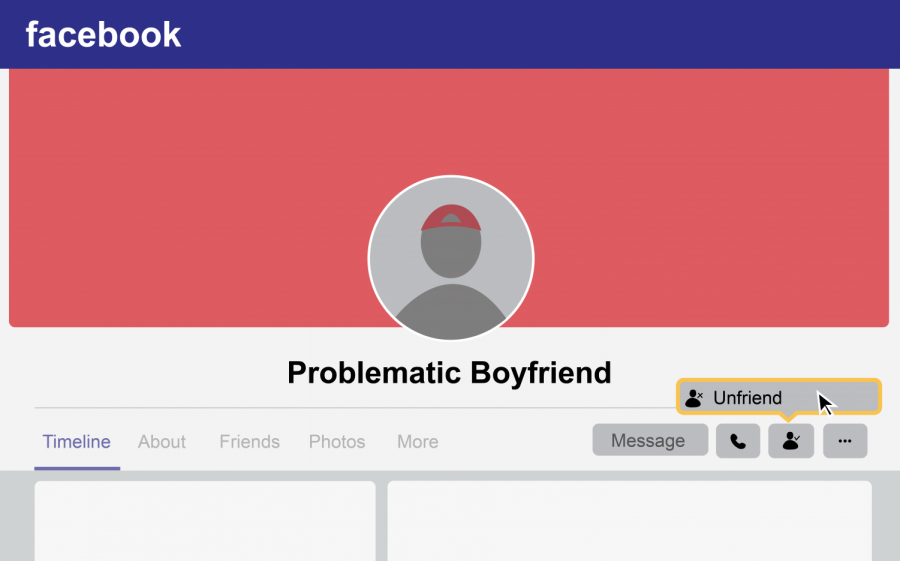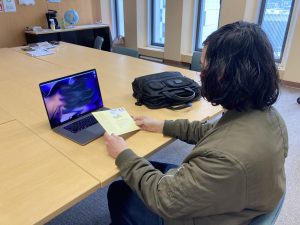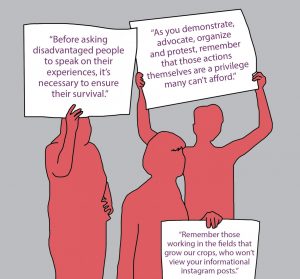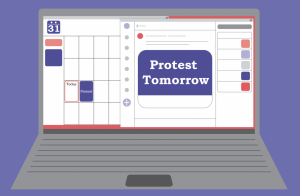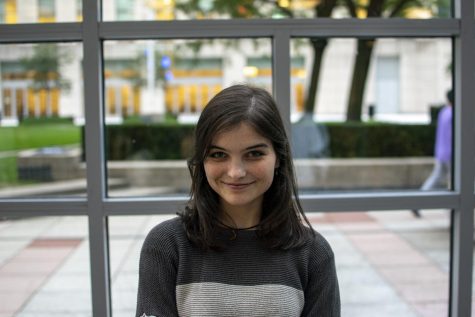The Role of Politics in Relationships — Neutral, Insidious or Destructive?
How political differences have affected Fordham students’ personal relationships
In the Observer’s political survey of 211 students, 84 had ended a friendship based on opposing beliefs and 74 considered themselves unlikely to befriend someone with different viewpoints.
October 26, 2020
“I was talking to a guy at Rose Hill and found out that he supported Donald Trump. That’s a dealbreaker for me,” Alleyah Ally, Fordham College at Lincoln Center (FCLC) ’23, said. “Your personal politics speak to your fundamental morals, so I would never be compatible with someone with very different political beliefs to mine.”
Ally’s opinion was not uncommon in the group of 211 Fordham students who responded to The Observer’s anonymous political survey; 84 of the 211 respondents reported ending a friendship due to contrasting beliefs.
For a one-to-five sliding scale question regarding willingness to befriend someone who holds opposing beliefs, the highest percentage consisted of 74 students who selected “2,” or “unlikely.”
According to a study conducted by the Pew Research Center this past July and August, most voters report having many friends who share their political beliefs. Of those surveyed, 59% of Trump supporters said they have a significant number of friends who support the president’s reelection, while 48% of Biden supporters said they are friends with those who support the former vice president’s victory.
You need that person who can tell you that you’re wrong, because many times we are wrong, including me. Alex Rivera, FCLC ’24
Although The Observer’s survey did not specify candidates in the question asking about the political beliefs of the respondent’s closest friends, Fordham students seem to have political diversity within their friendship circles.
While 52%, or 109 respondents, reported having close friends who share their political beliefs, 40%, which amounts to 95 respondents, reported having a mixture of friends with whom they agreed and disagreed with.
“Particularly in your friend groups, you don’t want somebody who’s always agreeing with you, telling you that you’re right,” Alex Rivera, FCLC ’24, said. “You need that person who can tell you that you’re wrong, because many times we are wrong, including me.”
Rivera hails from Dallas, Texas, which he described as predominantly conservative. Growing up in a conservative family, he rarely faced opposition for his political beliefs until he arrived at Fordham. As a first-year at Fordham, he is part of a number of Class of 2024 groups in which students introduce themselves and disseminate information.
One instance in which Rivera felt his fellow classmates were being intolerant was related to the backlash the College Republicans club received in response to posting an advertisement for their club on a Class of 2024 forum page. As a member of the club, he felt that the labeling, generalizations and claims of intentional provocation were incorrect and intensified his concern about being transparent with his political affiliation and support of Trump.
Rivera also emphasized that he would not turn his back on his friends if they chose to cut him off due to political differences.
“I feel like the relationship we have has value and something as dumb as politics should not ruin that relationship or friendship. It just doesn’t make sense to me,” he said.
This stance on politics stands in sharp contrast to the opinion of a left-leaning survey respondent who wrote, “Politics isn’t a closed-universe system where you vote and you’re done—it takes into account the moral and societal beliefs a person holds. Friendship and having a relationship with someone is not a right, it’s a privilege, and people shouldn’t be guilted into associating with someone who doesn’t have their best interests at heart.”
Teodor Parolo Tasevski, Gabelli School of Business ’23, conversely believes that cutting friends and family off due to political beliefs is unnecessary and claimed that it is “very detrimental to society in the long run.”
As a Macedonian international student, Tasevski cannot vote in the presidential election but identifies as a conservative and supports Trump over Biden. Although he personally has not experienced extreme dissent from friends and family over his political beliefs, Tasevski emphasized the correlation between “cancel culture” and rising political division in personal relationships.
“People are not willing to listen to each other. It’s really sad when you cut off people like your family or your close friends just because you don’t agree on something,” he said. “I think that is a very undemocratic way of living.”
Both Rivera and Tasevski agreed that a person’s politics at least partially reflect their values but emphasized the need for nuance and understanding in political conversations.
I do not think my grandfather is ‘a racist,’ but I strongly believe we all have a duty to point out each other’s racist assumptions. Nora Thomas, FCRH ’21
Other survey respondents regard opposing views as a personal affront, deeming someone’s political beliefs as a reflection of their morals and their level of respect for certain communities.
“Supporting Donald Trump is a direct insult to my existence and the existence of many subaltern groups in the United States. Anyone who supports his rhetoric cannot be my friend because they see my community and others as somehow less than or inferior,” said one survey respondent who supports the Biden-Harris ticket.
Multiple students also recalled considering or officially terminating relationships in which one person held opposing beliefs or refused to vote, citing “lack of empathy” and feeling privileged enough to “not care for politics.”
Political tension can also be seen in familial relationships. Only 35% of the students reported having family members whose political beliefs they agreed with. Of the 25% who stated that they do not agree with their family members’ political beliefs, 90% reported challenging them on their political beliefs.
Some of the negative consequences of these conversations reflect generational differences and sensitivities. Nora Thomas, Fordham College at Rose Hill (FCRH) ’21, recalled a conversation from last winter when her stepmom, Wendy, sided with her grandfather, who felt he was being labeled as a racist following an interaction between the two. Thomas’ grandfather is a Republican who voted for Trump in 2016.
“Wendy made it clear to me that she cares more about my grandfather’s feelings than vocalizing resistance to internalized racism, which did not sit well with me,” Thomas said. “I do not think my grandfather is ‘a racist,’ but I strongly believe we all have a duty to point out each other’s racist assumptions.”
“It is…extraordinarily troubling to witness loved ones value individuals’ pride above a moral duty to dismantle violent (however implicit) ideologies,” she continued.
Despite being on opposite sides of the political spectrum, Rivera, Tasevski and Thomas all agreed that the ability to terminate ties with friends and family due to political differences is potentially an indicator of white privilege and not an option generally afforded to people of color.
Privilege also factors into the choice to vote, a topic that has been widely contested on social media and drew significant criticism from students who encourage others to vote. For some Black, Indigenous and people of color, neither presidential candidate offers the representation and commitment to structural change they seek, resulting in a lack of desire to vote.

